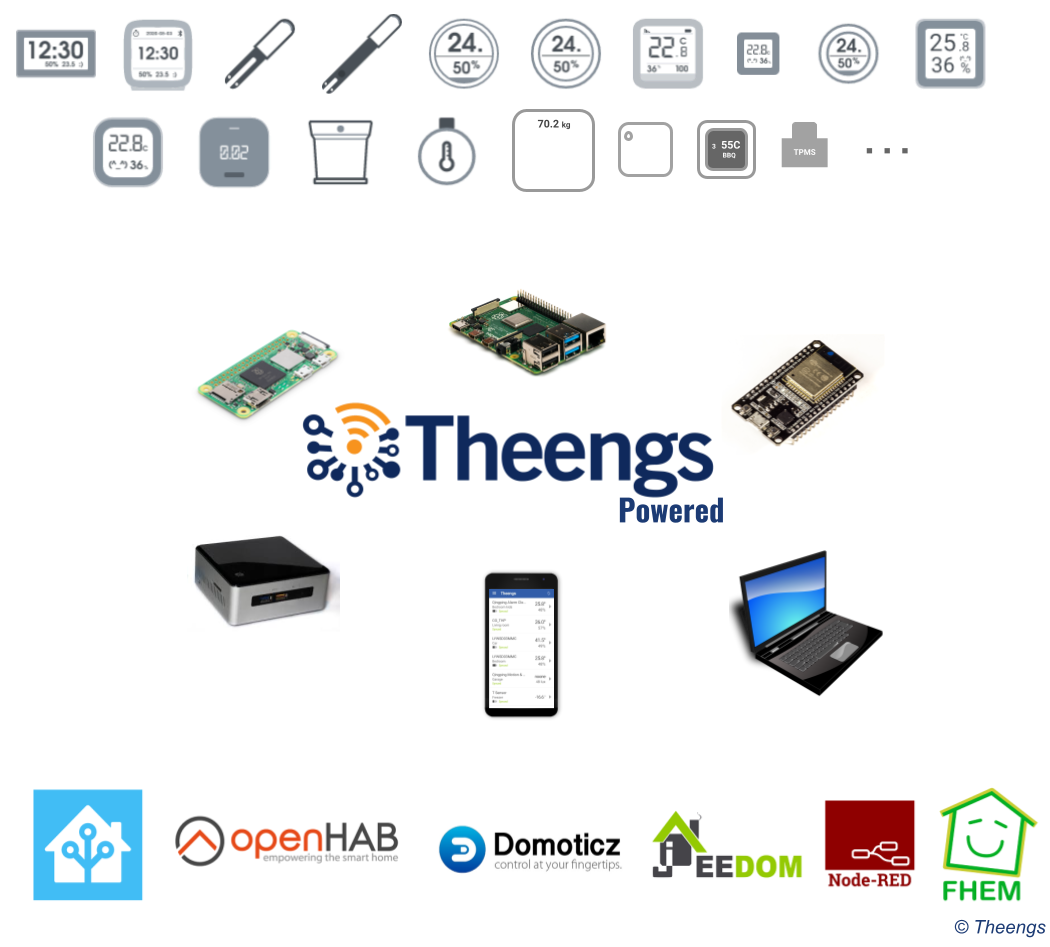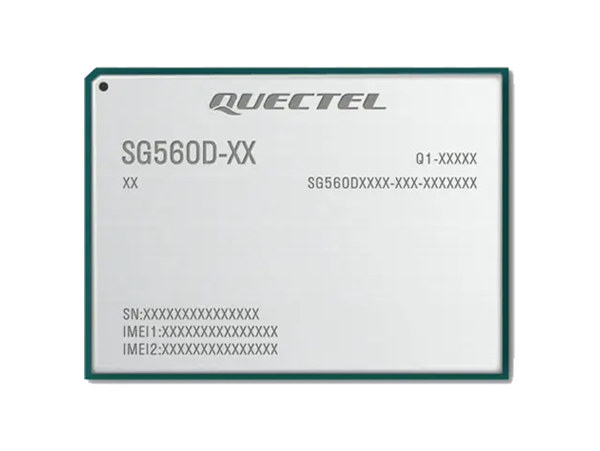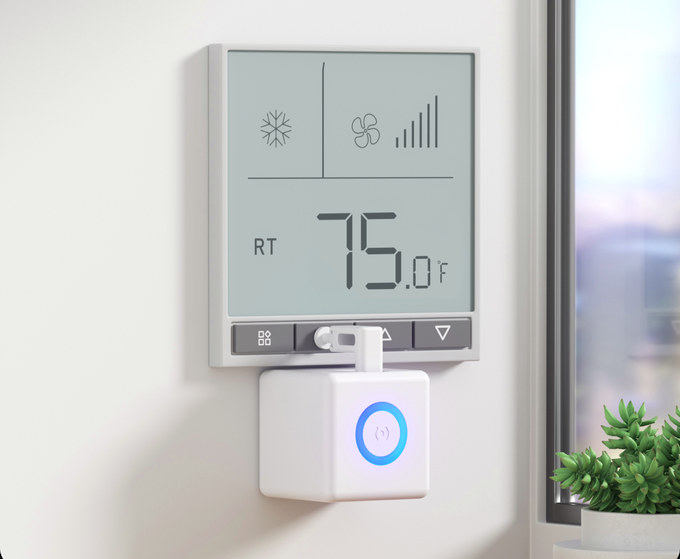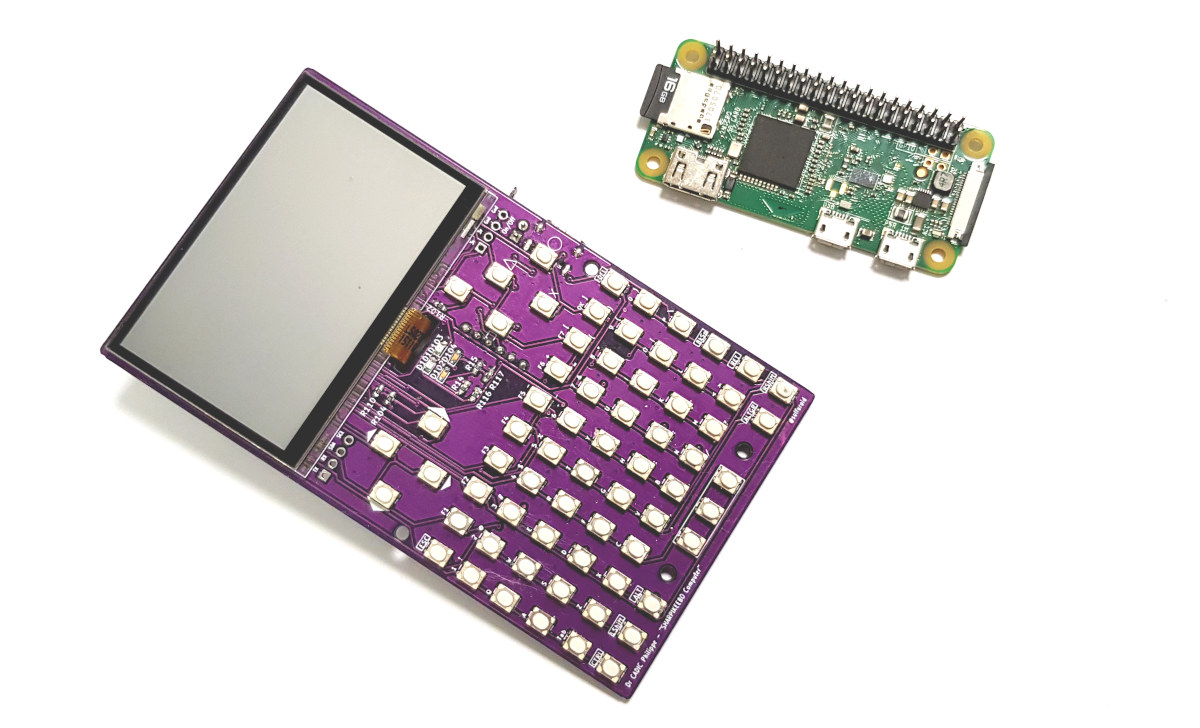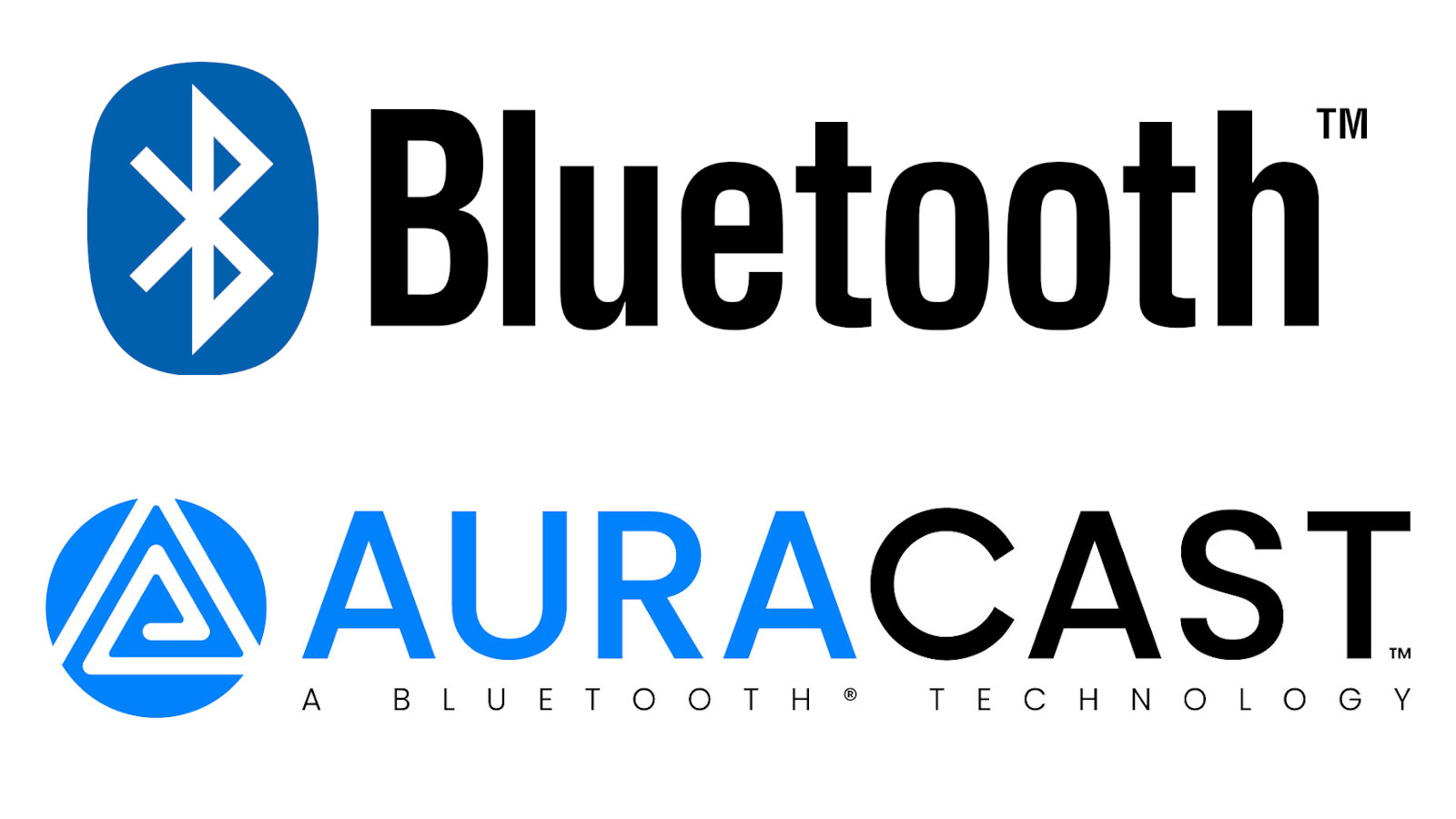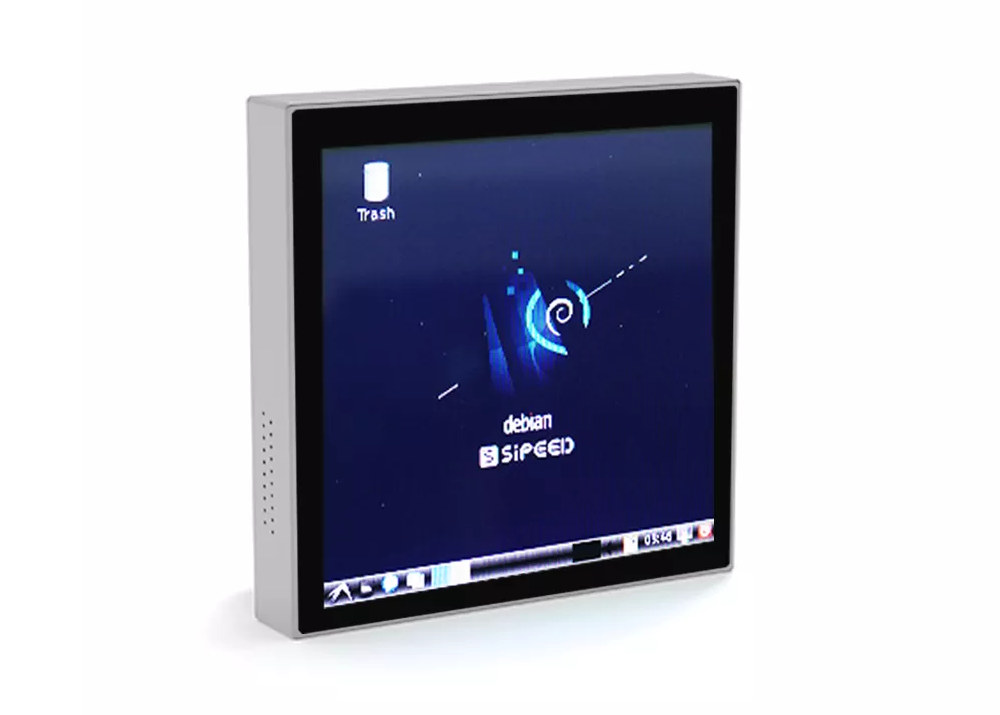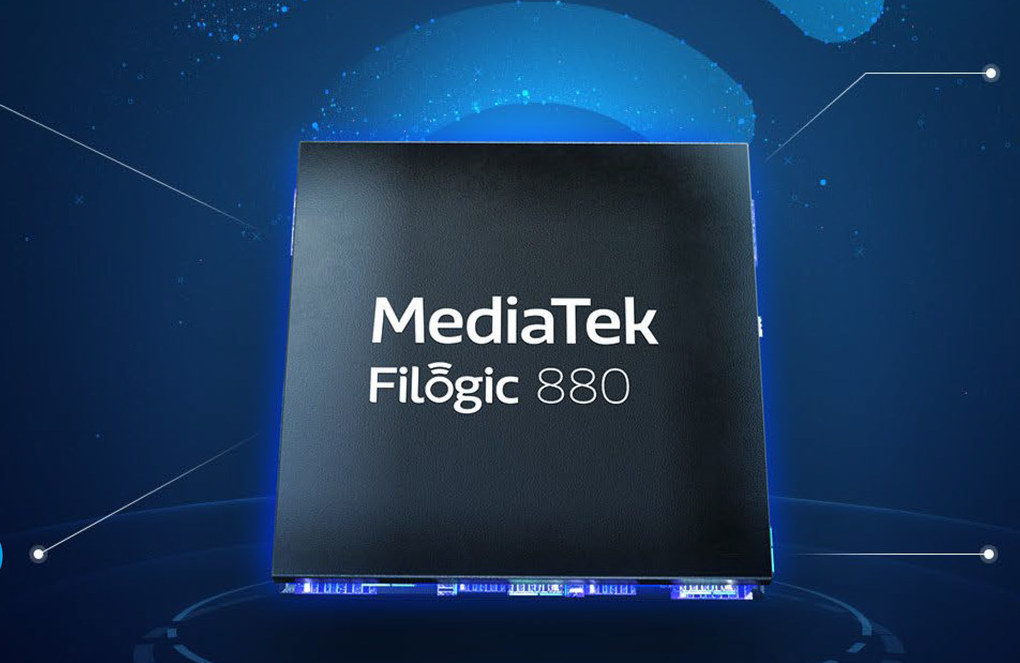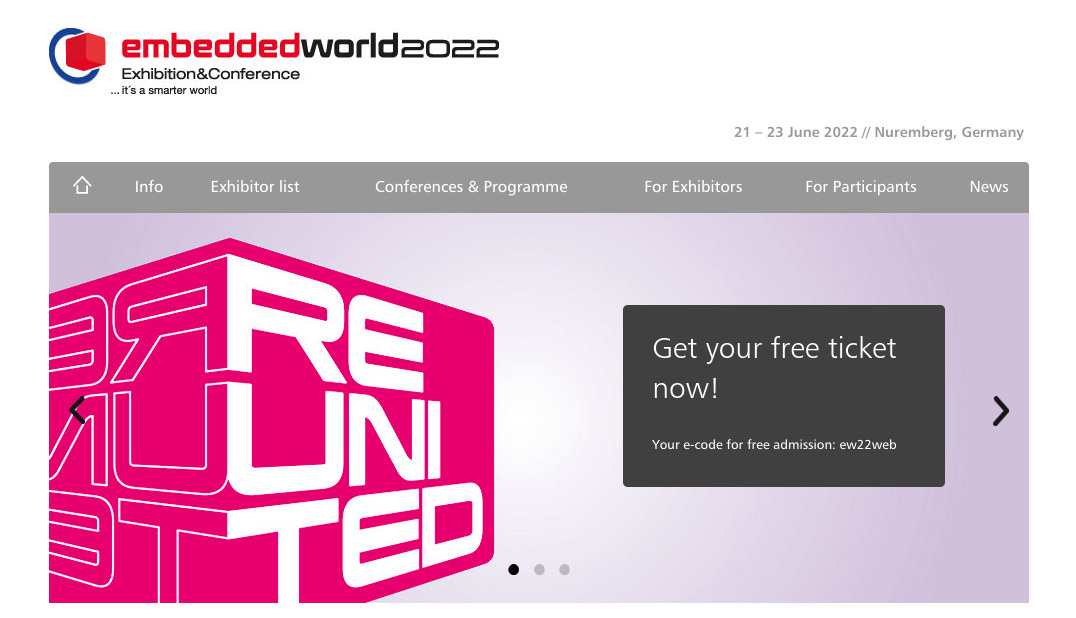Theengs is a manufacturer agnostic open-source set of tools to decode BLE sensors and integrate those into smart home and IoT solutions such as Home Assistant with notably support for autodiscovery to automatically create the sensor. Theengs can be installed on various hardware from ESP32 to an Android phone or a Raspberry Pi SBC, and the solution currently supports close to forty BLE sensors from various companies including Xiaomi, Honeywell, and RuuviTag. There are six components: The Theengs Decoder library developed in C++ for portability and translating data from sensors into human-readable data using the JSON format. The Python-based Theengs Gateway acting as a BLE to MQTT bridge for Home Assistant, OpenHAB, and NodeRED integration. It relies on the Theengs Decoder library and publishes the sensors broadcasted BLE information to an MQTT broker. The OpenMQTTGateway is also BLE to MQTT bridge, but instead of targetting Linux-capable hardware like Raspberry […]
Quectel SG560D 5G & WiFi 6E module runs Android 12, targets AIoT applications
Quectel SG560D is a 5G Sub-6GHz & WiFi 6E module for AIoT applications that runs Android 12 on a Qualcomm QCM6490 SoC with an octa-core Kryo 670 64-bit Arm CPU and a Qualcomm Adreno 643L GPU. The SG560D module is equipped with 4GB LPDDR4X RAM and 64GB UFS storage by default, supports up to 2520×1080 MIPI display at a refresh rate of 144Hz, and can deliver up to 14 TOPS for AI inference. Quectel SG560D key features and specifications: SoC – Qualcomm QCM6490 octa-core processor with one Kryo 670 Gold plus high-performance core up to 2.7 GHz, 3x Kryo Gold cores at 2.4 GHz, 4x Kryo Silver low-power cores @ 1.9 GHz, Adreno 643L GPU, 6th gen AI Engine delivering up to 14 TOPS, up to 4Kp30 H.265/H.264 video encode, 4Kp60 video decode; 6nm process. System Memory – 4GB LPDDR4X by default Storage – 64GB UFS flash by default Display […]
Fingerbot Sense Zigbee or Bluetooth LE button pusher adds touchless control (Crowdfunding)
When we first wrote about Fingerbot Bluetooth mechanical button pusher to add automation control to (dumb) home appliances over two years ago, I was not convinced about the solution. But it must have gained enough traction, as Adaprox has now launched a sensor version – the Fingerbot Sense – with either Zigbee or Bluetooth connectivity, plus a new touchless control function. It works just the same way as before, simply place the Fingerbot Sense on top of a physical button, and control it with your smartphone, a voice assistant like Amazon Alexa or Google Home, or with the new touchless control, simply wave your hand in front of the button without having to touch it. Fingerbot Sense specifications: Connectivity – Bluetooth LE 4.2 or Zigbee 3.0 Stall torque – 2.0 kgf.cm Maximum movement – 12 mm Optional Toolpack with short, medium, long straight arms, rocker arm, ring arm, cushion blocks […]
ShaRPiKeebo handheld Linux computer based on Raspberry Pi Zero (2) W ships with a LoRa radio (Crowdfunding)
Morpheans ShaRPiKeebo is a portable Linux computer based on Raspberry Pi Zero W or Zero 2 W SBC that reminds me of the Allwinner R8 powered PocketCHIP handheld computer that was introduced in 2016, and was quite popular (for a niche product) at the time. The ShaRPiKeebo comes with a physical QWERTY keyboard, a daylight-readable screen, and Wi-Fi & Bluetooth connectivity, but also adds a 433 MHz LoRa radio that should make it usable as an off-the-grid communicator. Just like PocketCHIP, the ShaRPiKeebo can be used for system administration, retro-gaming, pen testing, STEM education, and all sort of maker projects. ShaRPiKeebo specifications: Supported SBCs via 40-pin GPIO header – Raspberry Pi Zero W, Raspberry Pi Zero 2 W, and (maybe) compatible SBCs like Radxa Zero or Banana Pi M2 Zero Display – 2.7- inch SHARP memory display (LS027B7DH01) with 400×240 resolution, low-latency, low-power Connectivity 802.11 b/g/n WiFi 4, Bluetooth 4.2 […]
Bluetooth Auracast broadcast audio is the new name for Bluetooth LE audio sharing
Multi-stream and broadcast audio features part of the Bluetooth LE Audio standard have been given a brand name by the Bluetooth Special Interest Group (SIG). Meet Bluetooth Auracast broadcast audio, or simply Auracast for shorts. As a reminder, Bluetooth Audio LE broadcast enables an audio transmitter, be it a smartphone, laptop, television, or public address system to broadcast audio to an unlimited number of nearby Bluetooth audio receivers that could be speakers, earbuds, or even hearing devices. Auracast broadcast audio will let users invite others to listen to the same music without disturbing others around them, for example, a group of friends could listen to the music in the subway or on a bus through Auracast-enabled earbuds. Auracast will also be useful in public places, where for instance, users could listen to the audio from muted televisions at airports, gymnasiums, or train stations, and public announcements (e.g. gate changes, boarding […]
Lichee RV-86 RISC-V Linux 4-inch panel targets home automation, HMI applications
When Sipeed first introduced the Lichee RV module with Allwinner D1 RISC-V SoC last November, they also teased the Lichee RV-86, an “86 Box” with a 4-inch 480×480 touchscreen display, an XR829 WiFi and Bluetooth module, Ethernet (via USB), two microphones, a GPIO header, and support for WAFT (WebAssembly Framework for Things). I’ve just noticed the Lichee RV-86 has been for sale for several months, so it may be interesting to have a closer look, and now there’s also an option to get a 720×720 touchscreen display. Lichee RV-86 specifications: SoM – Sipeed Lichee RV Nezha compute module with Allwinner D1 RISC-V processor @ 1 GHz, 512MB or 1GB DDR3, microSD card slot, and USB Type-C OTG port Display 4-inch 480×480 IPS capacitive touch screen OR 4-inch 720×720 IPS capacitive touch screen It is also possible to connect an 8-inch 1280*800 IPS capacitive touch screen to the board Audio – […]
MediaTek Filogic 880 and Filogic 380 to power WiFi 7 access points and clients
I first heard about WiFi 7 (802.11be) when MediaTek demonstrated some unknown Filogic solutions to customers, but few details were known at the time. The company has now formally announced the Filogic 880 and Filogic 380 WiFi 7 solutions designed for access points and clients respectively. MediaTek Filogic 880 for WiFi 7 access points, gateways, and routers Filogic 880 specifications: CPU – Quad-core Arm Cortex-A73 application processor @ up to 1.8 GHz (about 30K DMIPS performance) AI accelerator – Advanced NPU (previously called “packet accelerator” or “off-load engine” :)) with HW NAT/IPv6 acceleration, QoS acceleration, (EIP-197) crypto engine for accelerating IPSec, SSL/TLS, DTLS (CAPWAP), SRTP and MACsec, etc… System Memory – Up to 8GB 32-bit DDR3/DDR4 3200 Storage – SPI NOR flash, SPI NAND flash, eMMC flash Networking Wired 2x 10 Gbps Ethernet 1x 2.5 Gbps Ethernet 4x 1 Gbps Ethernet Wireless Wi-Fi 7 technologies such as 4096-QAM, 320MHz, MRU, […]
Embedded World 2022 – June 21-23 – Virtual Schedule
Embedded World 2020 was a lonely affair with many companies canceling attendance due to COVID-19, and Embedded World 2021 took place online only. But Embedded World is back to Nuremberg, Germany in 2022 albeit with the event moved from the traditional month of February to June 21-23. Embedded systems companies and those that service them will showcase their latest solution at their respective booths, and there will be a conference with talks and classes during the three-day event. The programme is up, so I made my own little Embedded World 2022 virtual schedule as there may be a few things to learn, even though I won’t be attending. Tuesday, June 21, 2022 10:00 – 13:00 – Rust, a Safe Language for Low-level Programming Rust is a relatively new language in the area of systems and low-level programming. Its main goals are performance, correctness, safety, and productivity. While still ~70% of […]


